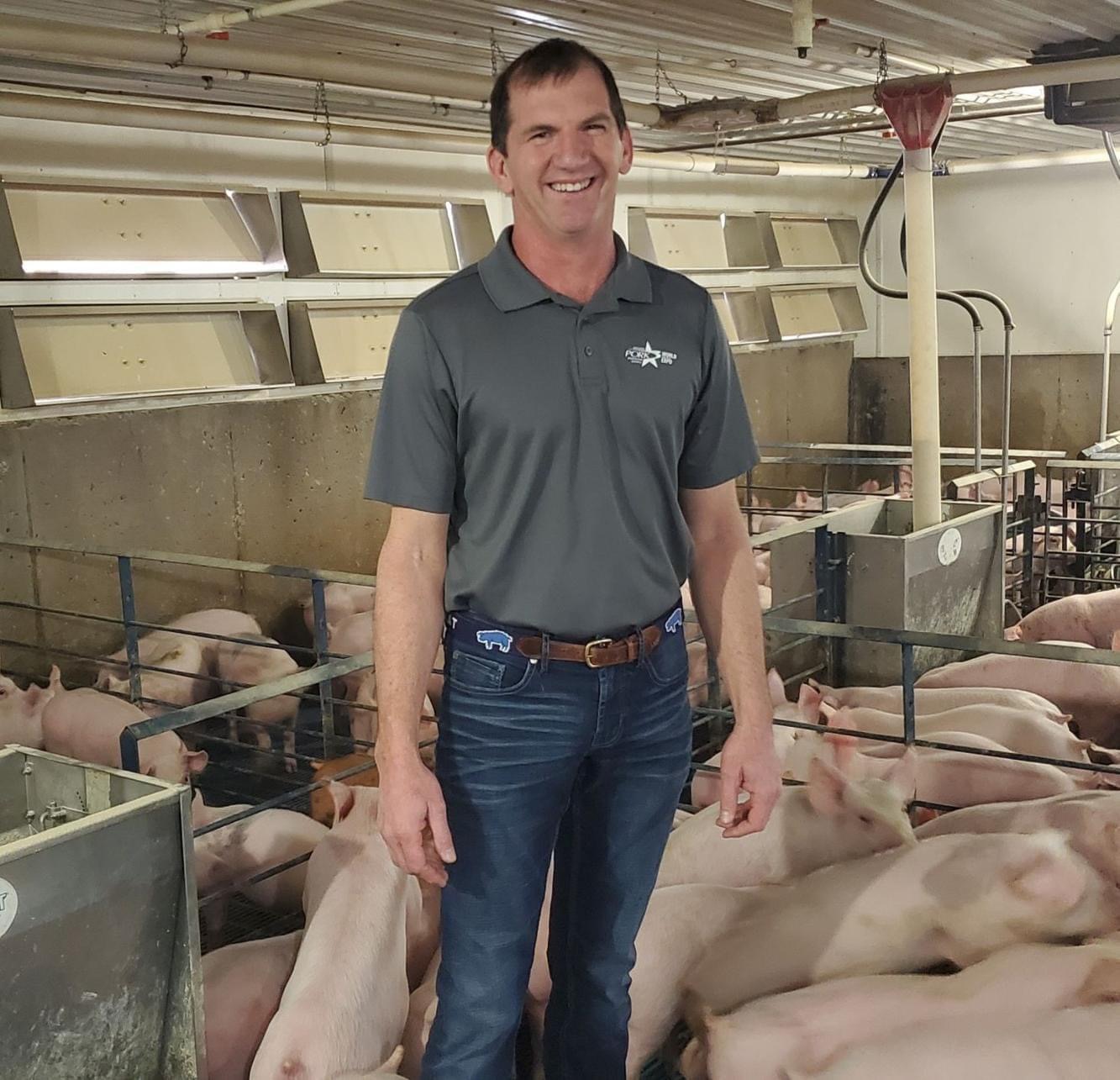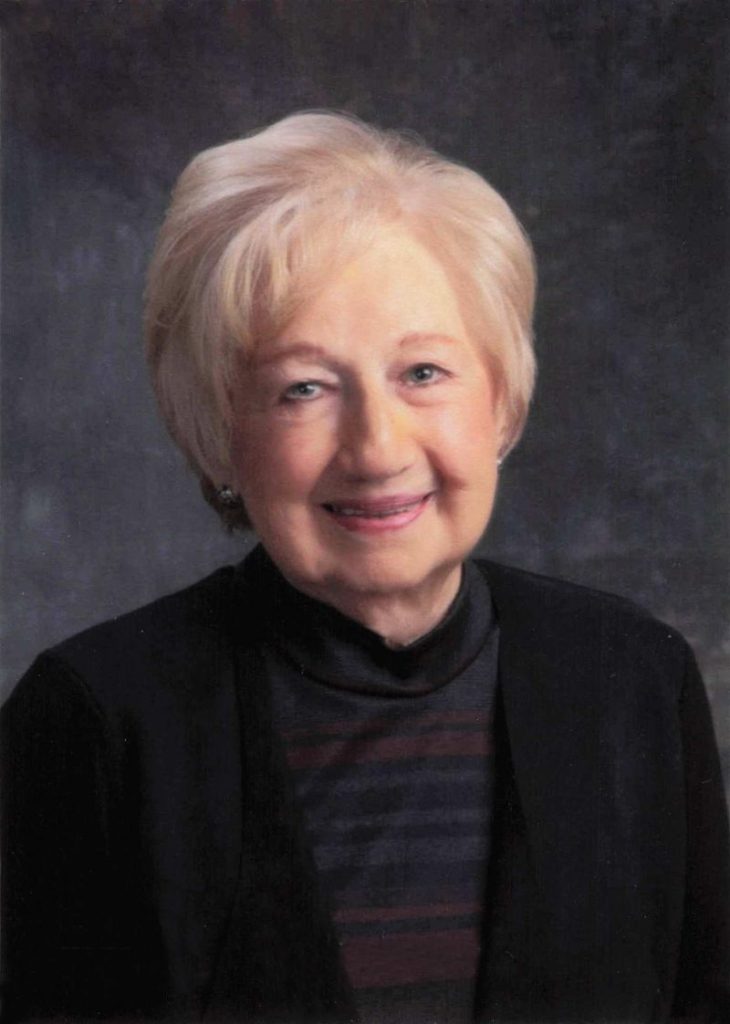Local farmer fights California law in the U.S. Supreme Court

MONROE CITY, Mo. — California’s Proposition 12, which imposes livestock confinement regulations on farmers around the country who sell to the state, became the law of the land on July 1.
Scott Hays is a fifth generation pork producer at Two Mile Pork in Monroe City, and when it comes to livestock, he believes local farmers and their veterinarians know best.
The California law crosses state lines by requiring Prop 12 compliance from producers in any state who sell to California consumers, which make up 15 percent of pork sales in the country.
Hays is also the president of the National Pork Producers Council (NPPC) and since California voters approved the law in 2018, the group has been fighting to keep local farming decisions at home.
The main sponsor of the bill is the Humane Society of the United States, along with other activist groups including The Animal Legal Defense Fund and Animal Outlook.
The legal battle ended on May 11 when the U.S. Supreme Court voted 5-4 to uphold Prop 12.
Proposition 12
Proposition 12 defines the minimum amount of space that farmers must give to cows, pigs and chickens who are held in confinement.
For pork producers, the law bans the sale of uncooked pork in California from offspring of breeding pigs, called sows, kept in pens with less than 24 square feet of space per sow.
Christine McCracken, a senior animal protein analyst at Rabobank Research, reported in March 2021 that only about 4% of sows in the U.S. have that much living space.
Hays said there is no science behind the 24 square feet requirement.
“We don’t know where they came up with that number,” he said. “Even the California courts told the state of California they could not make claims about this being better for the animals because the research would say it’s not.”
In his U.S. Supreme Court opinion, Chief Justice John Roberts expressed concern that the square footage requirements could compel farmers to adopt group housing which could spread pathogens and disease.
He wrote further, “And “[b]y preventing the use of breeding stalls during the 30 to 40 day period between weaning and confirmation of pregnancy, Proposition 12 puts sows at greater risk of injury and stress during the vulnerable stages of breeding and gestation.
“These consequential threats to animal welfare and industry practice are difficult to quantify and are not susceptible to categorization as mere costs of compliance.”
Complying with the California law is more than just increasing the amount of the space, Hays explained that at last count there were 50 pages of rules and a hundred pages of definitions making up Prop 12.
Hays said medical requirements are in the law.
For example, a pig can remain in a medical treatment pen for only six hours per day.
“Anyone who has raised animals knows that’s not unworkable. We need to keep her in an individual pen until she is better.
“Pigs have a pecking order and they have to fight their way into the pecking order. Everyone will pick on them until they find their spot. If you take a sow out for six hours and put it in an individual pen then put her back in the group each day, they are all going to beat her up,” Hays continued.
Hays said consumers and activists are not the experts on raising livestock but farmers and veterinarians are.
“Most modern facilities have consulting veterinarians. On our farm, he’s there twice a month on a routine schedule and as needed otherwise,” he said. “There isn’t a week that goes by when we aren’t in contact with our vet.”
Don Nikodim, the executive director at the Missouri Pork Association, believes local farmers have the best interests of their animals at heart. He praised the Missouri farms he often visits.
“Those pigs are cared for better than some people with their nutrition and so on. It makes sense because animals won’t be productive if you aren’t taking care of them,” he said. “Bottom line, ever since I have been a kid growing up, we have known that if you take care of your animals, then they will take care of you. It’s in the farmers’ best interest to give their animals the best care they can.”
Nikodim has been in contact with the California Department of Agriculture.
The state is creating auditing teams to travel across the country to validate and certify farms in compliance to sell to California. These farms will then be subject to inspections from the California Dept. of Agriculture.
“It varies on how Missouri farmers are feeling about this. Some have been preparing by looking at facilities and buildings over the last couple of years to be ready to do that. There aren’t many who have done that so it’s going to be interesting to see how it plays out,” he said.
The cost of compliance
There is some cost at the processor level segregating the pork products, but most of it is at the farm level.
The NPPC reports converting to Prop 12 standards farmers $3,500 per sow. A producer operating a 4,000 sow farm would have to invest $14 million to be compliant.
This comes at a time of record-high inflation.
“Economically, it’s a very tough time to raise pigs. This adds more uncertainty and has the potential to reduce the amount of pork consumed. It just makes a really tough time for producers even tougher,” Hays said. “We don’t know for sure how many people are in compliance. There’s not many people locally that I know of who are in compliance.”
Many farmers, including Hays, may choose not to comply with the California law. At this time, the processor he sells his meat to is not requiring Proposition 12 compliance.
“I am just not willing to spend the money it would take on our part, hoping the consumer will pay that price and hoping it will come back through the supply chain to me,” he said. “The processor we are selling to now isn’t demanding it. They are looking for a product but they aren’t demanding it. So, there is still demand for what we are going to produce.”
Hays said the immediate impact of the law will mostly fall on the Californians who rely on pork imported from other states. The State of California has almost no pork producers, yet the state has high pork consumption.
“Their population over indexes some pork because of ethnicity. Asians and Hispanics actually eat more pork than Americans,” Hays said.
According to the National Pork Producers Council website, Prop 12 specifically applies to bacon and other cuts of meat that have been cured, preserved, or flavored but not cooked.
It does not apply to combination products such as sandwiches, hot dogs, pizzas, or other prepared foods that are comprised of more than pork meat and seasonings. California has also said it will not apply to ground or comminuted pork such as that found in sausage.
Nikodim and Hays agree that the activists who put together Prop 12 are not just looking for safe practices but to lower or halt the consumption of meat altogether.
“For the most part, the folks who pushed to get this in place, are not folks that farm and raise animals. So, the activists who really pushed this don’t want us to use animals for meat anyway,” Nikodim said. “Their entire goal is to reduce meat consumption. It’s pretty obvious.”
“The activists who have pushed this through, their ultimate goal is to end animal production. They don’t want meat consumption,” Hays said. “So this is my opinion, anything they can do to disrupt agriculture and raise costs, which is what this will do to (California) consumers.”
Nikodim said the passing of Prop 12 serves as a good reminder to educate yourself before voting. Language on a ballot doesn’t usually include full details or consequences of what the law will do if enacted.
“Many people go vote for things without even having a clue what they mean,” he said. “On this, they just saw pigs on pretty green pastures of alfalfa or something. But it doesn’t last a day or two because pigs root it up if they are left to their own business.”
Consequences for Commerce
“We have said all along this isn’t just about pork or about Ag. We are going back to what we had 180 years ago when states are going to be issuing trade agreements between states,” Hays said. “Which will be a mess.”
The Supreme Court’s decision to uphold the law was disappointing, but Hays, who attended the arguments at the Supreme Court, said the ruling did not discredit their stance on Proposition 12.
In his opinion, Justice Roberts wrote, “Petitioners identify broader, market-wide consequences of compliance—economic harms that our precedents have recognized can amount to a burden on interstate commerce. I would therefore find that petitioners have stated a substantial burden against interstate commerce.”
“The judges understood the implications with commerce,” Hays said. “When you read through the texts or briefs from the court, they agreed that this is a problem, but they didn’t agree that it was their problem.”
Judges believed they should instead direct their efforts to Congress.
Moving forward, they are working on a legislation called the EATS Act.
“If passed, it would make significant changes. The EATS Act has been around for a few years. We are trying to change it so it isn’t just specific to Prop 12 but would address the issues in it. That way, other states can’t create similar laws to California’s.”
They hope to attach the EATS act to the Farm Bill, which negotiates SNAP programs every five years, and is coming up this year.
“If we can attach the EATS act to the Farm Bill then we have a chance of getting voted on this year,” Hays said. “Getting something like this voted on as a standalone is probably not going to happen.”
They look to garner the support of legislators, and specifically mentioned a boost in the effort would be to enlist the help of Senator Dick Durbin.
Nikodim said some states have already followed California’s footsteps in Massachusetts planning a similar law. He worries other states might do the same.
“If those people want to raise pigs like that, that’s great – more power to them — but don’t force that one on everybody who learned how to do it in a different aspect.”
Miss Clipping Out Stories to Save for Later?
Click the Purchase Story button below to order a print of this story. We will print it for you on matte photo paper to keep forever.

